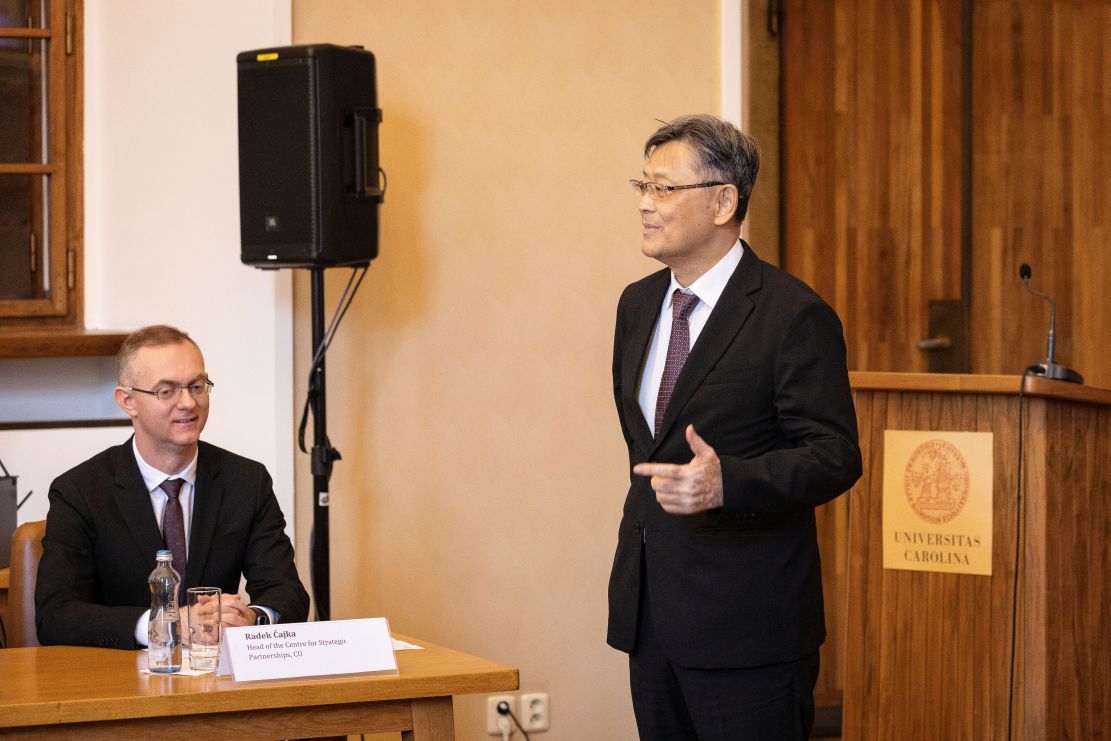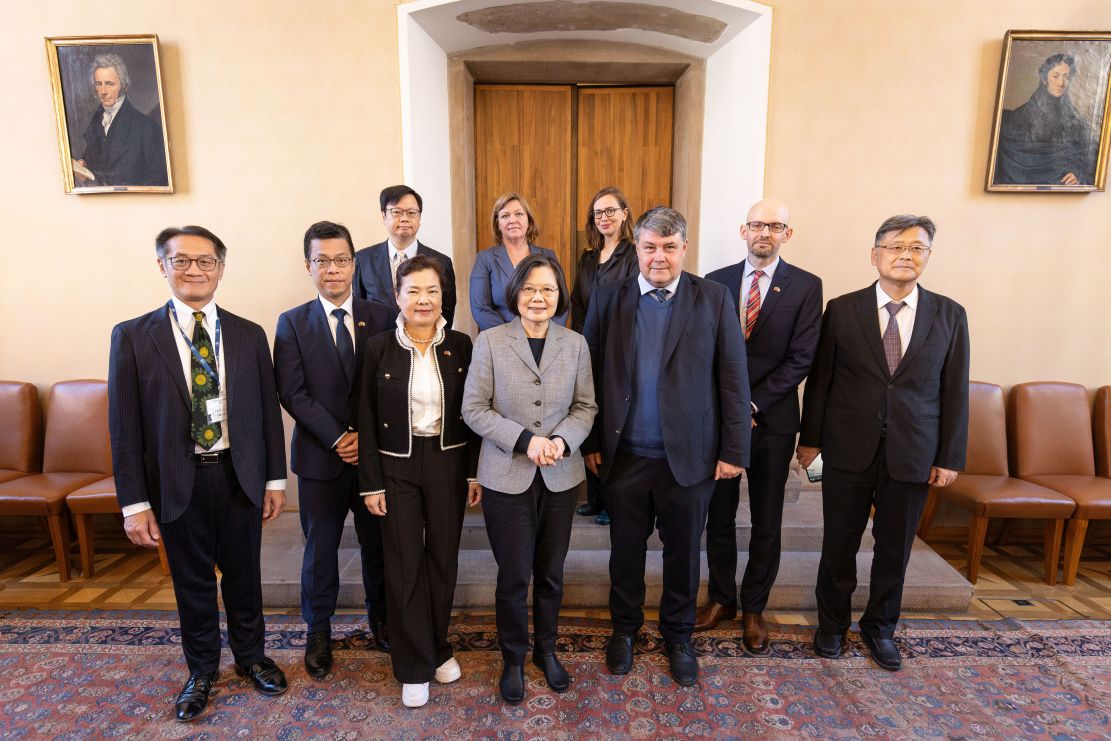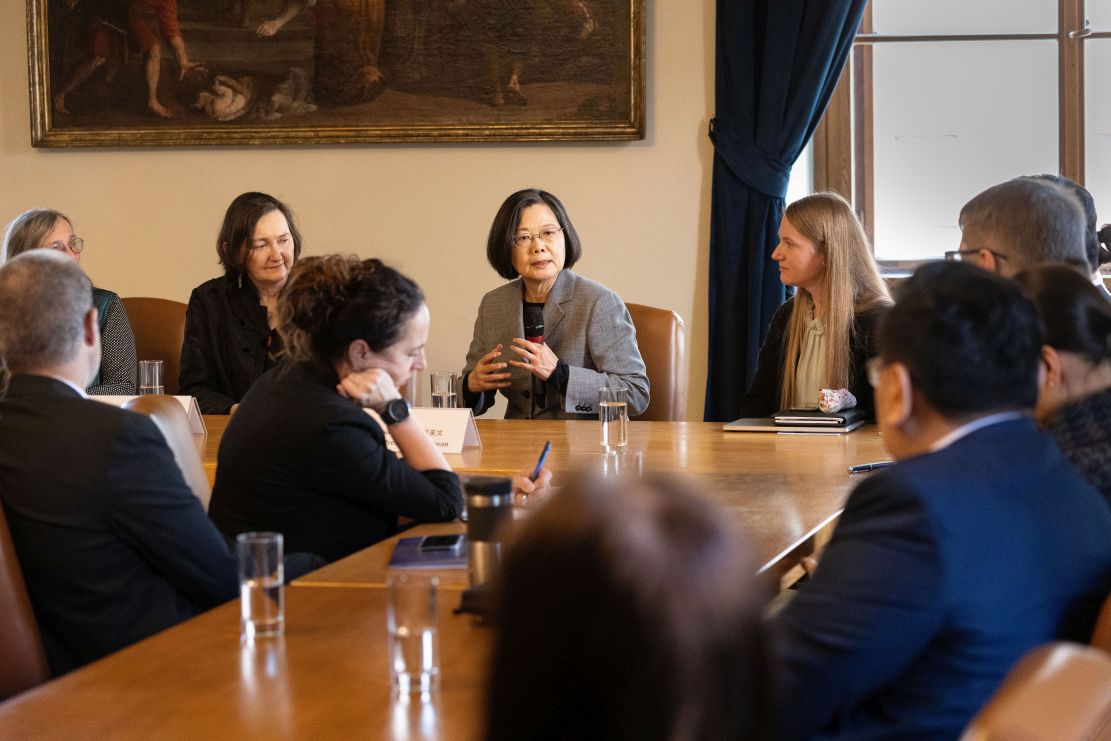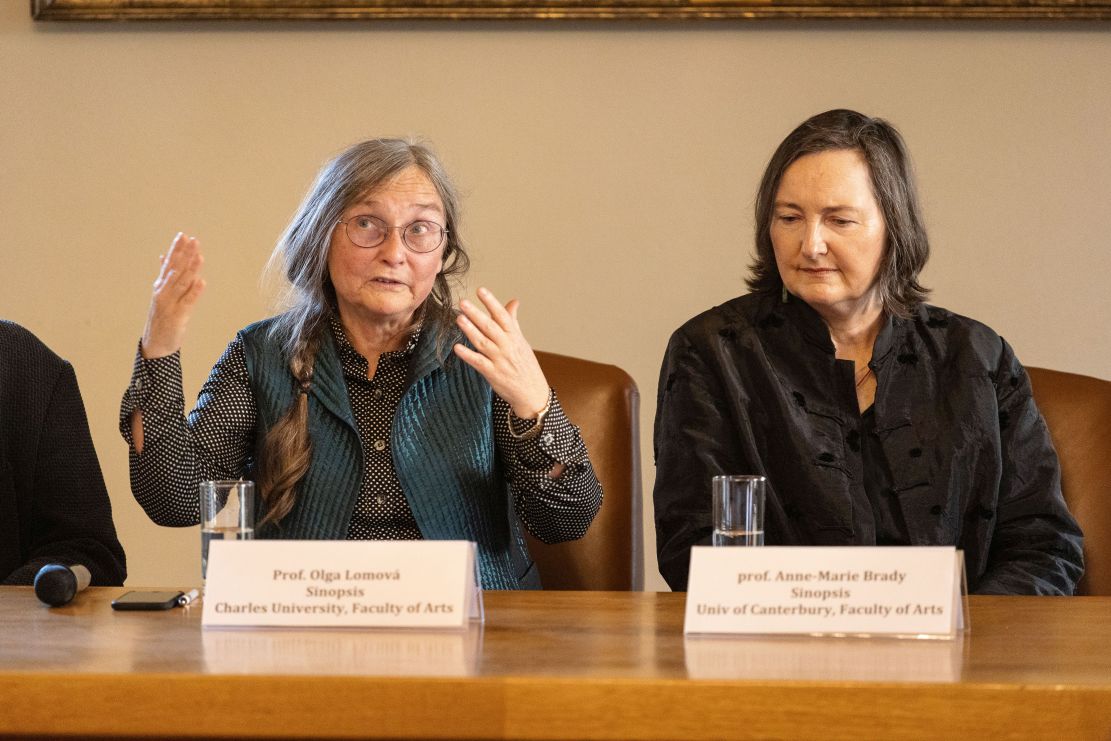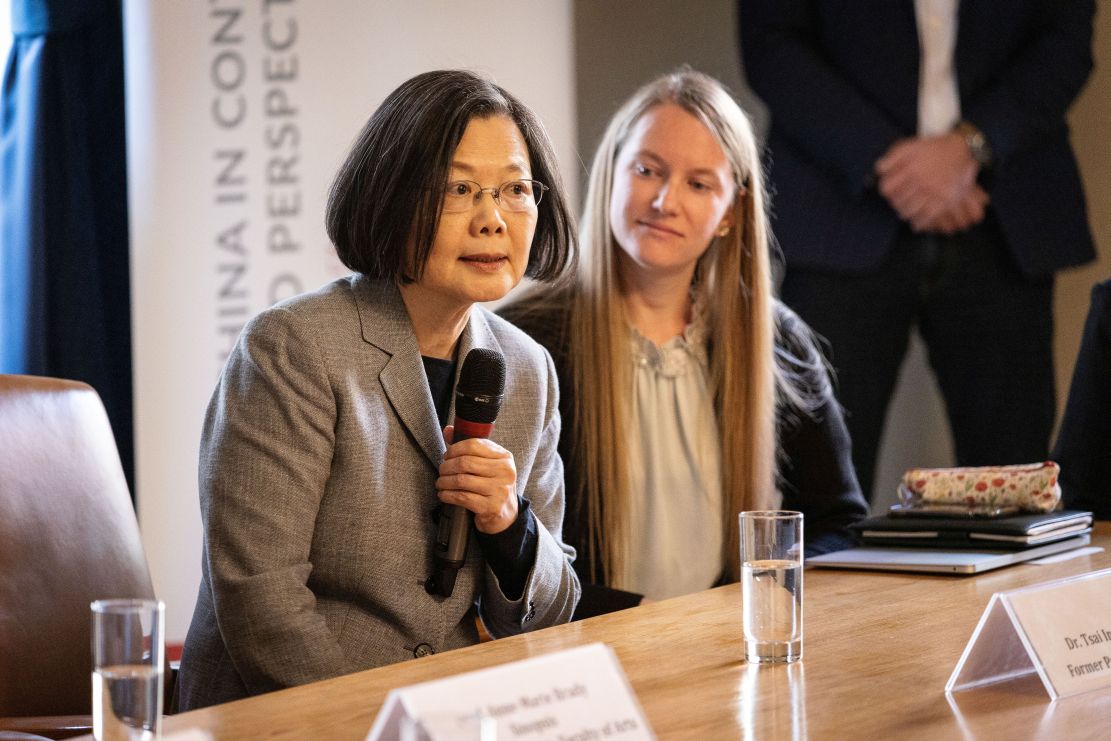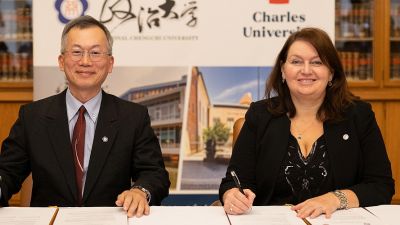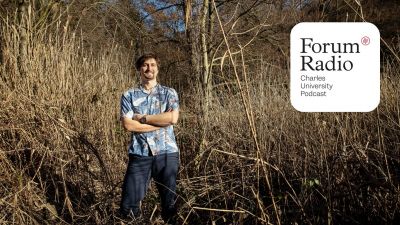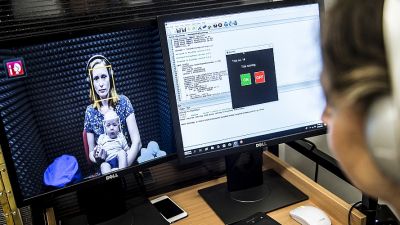Charles University welcomed Tsai Ing-wen, the former president of Taiwan, to the Carolinum on Tuesday to discuss the latest developments in a multi-project between Taiwan and Czechia. The Taiwanese government supports the development of the semiconductor environment here. Part of the project saw the launch of the Supply Chain Resilience Centre (SCRC) last autumn, a joint cooperation between CU and National Chengchi University.
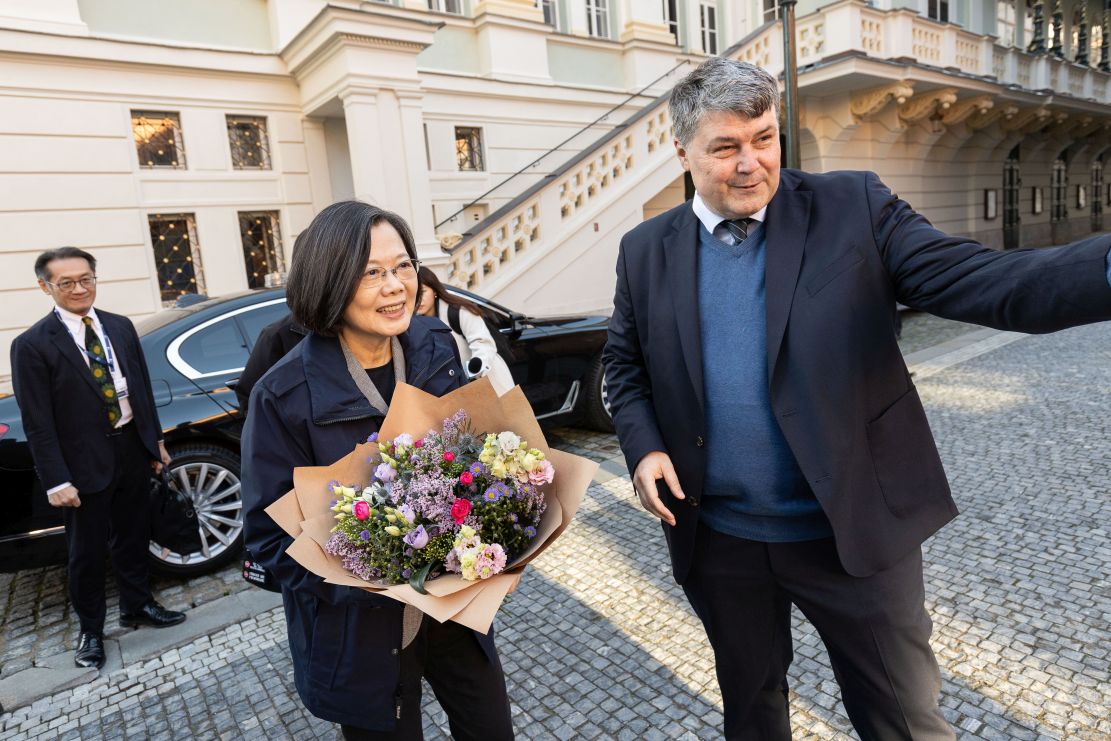
Former president Tsai Ing-wen is welcomed to CU by the vice-rector for academic appointments, Jan Kuklík, on 15 October 2024.
On Tuesday, the former president also met with students and academics for a short discussion and reflection on democratisation processes that changed the political landscape from 1989 onwards.
Taiwan’s former president Tsai Ing-wen, who served two four-year terms from 2016 until 20 May this year, was on her first visit to Europe. On Monday the former head-of-state met with Czech Senate President Miloš Vystrčil and Speaker of the Chamber of Deputies Markéta Pekarová Adamová, both of whom previously visited Taiwan and a day later took part in an important presentation at Charles University that included representatives from the Supply Resilience Centre including Professor Yih-Chyi Chuang, CzechInvest and the Czech Centres, outlining key initiatives to increase cultural and economic cooperation and encourage potential investors. Czechia, with a skilled workforce with strong engineering and technical backgrounds, is well-placed when it comes to supply chain integration with major manufacturers and offers advantages in distribution across the EU.
Likewise, Charles University is cooperating with Taiwanese universities on important and even prestigious study opportunities for students. On Tuesday, speakers included Charles University's Vice-Rector for Academic Appointments Jan Kuklík, who welcomed the ex-president and delegation (which also included the former minister of ecomonic affairs Wang Mei-Hua) to CU, also on behalf of Rector Milena Králíčková who is currently on a working visit in the United States.
Ex-president Tsai Ing-wen confirmed she was impressed by Czechia during her stay although some legidslative and workforce details in the semiconductor sector still had to be worked out. She, and the former finance minister, made clear there were advantages to be gained from deepening cooperation. While Czechia does not focus on the large-scale production of semiconductors (like Taiwan), it does have a robust manufacturing ecosystem that supports semiconductor-related industries, such as electronics and automotive - the latter of which was repeatedly referenced.
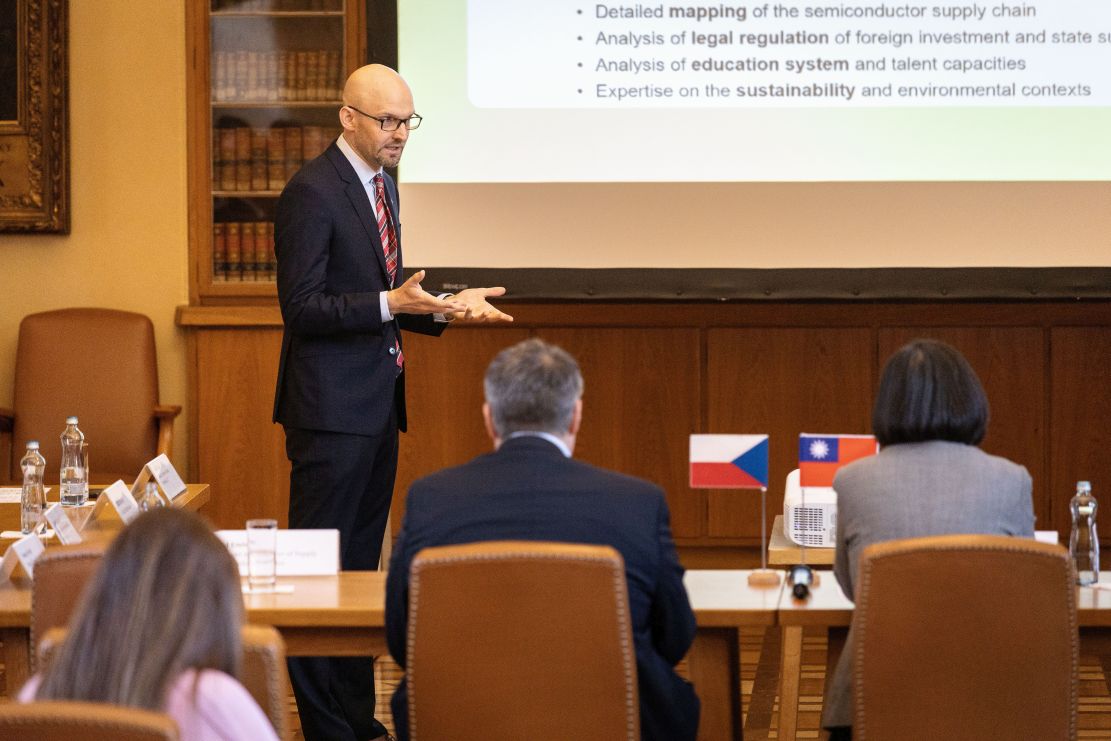
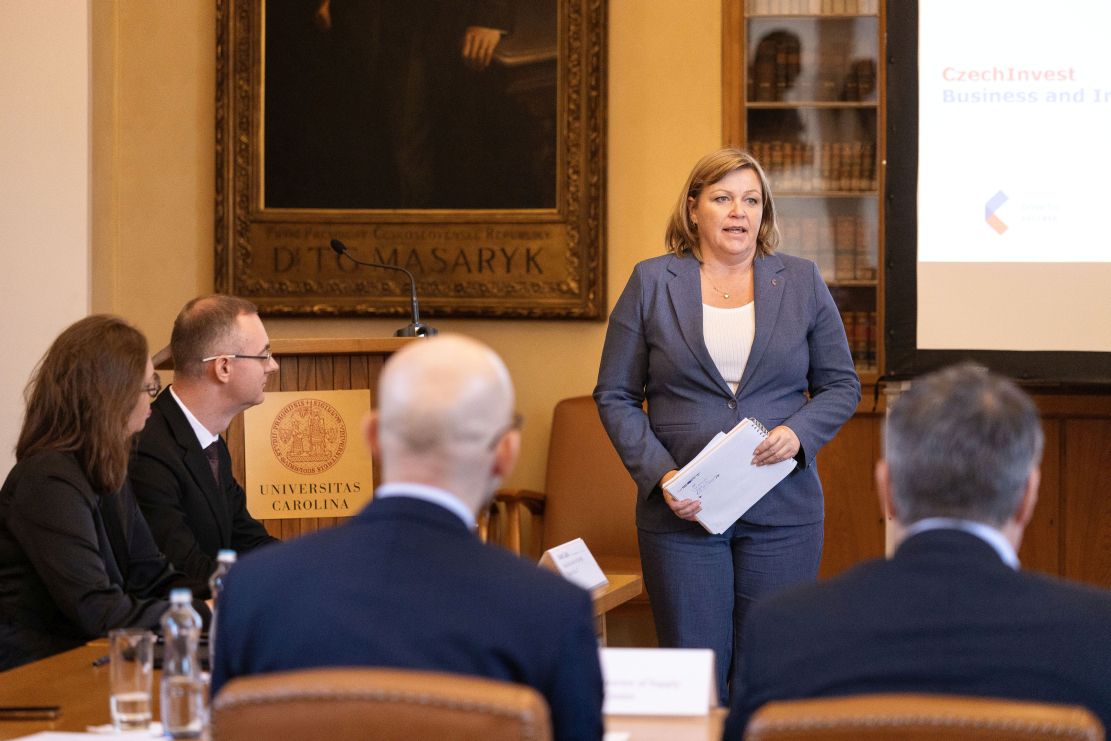
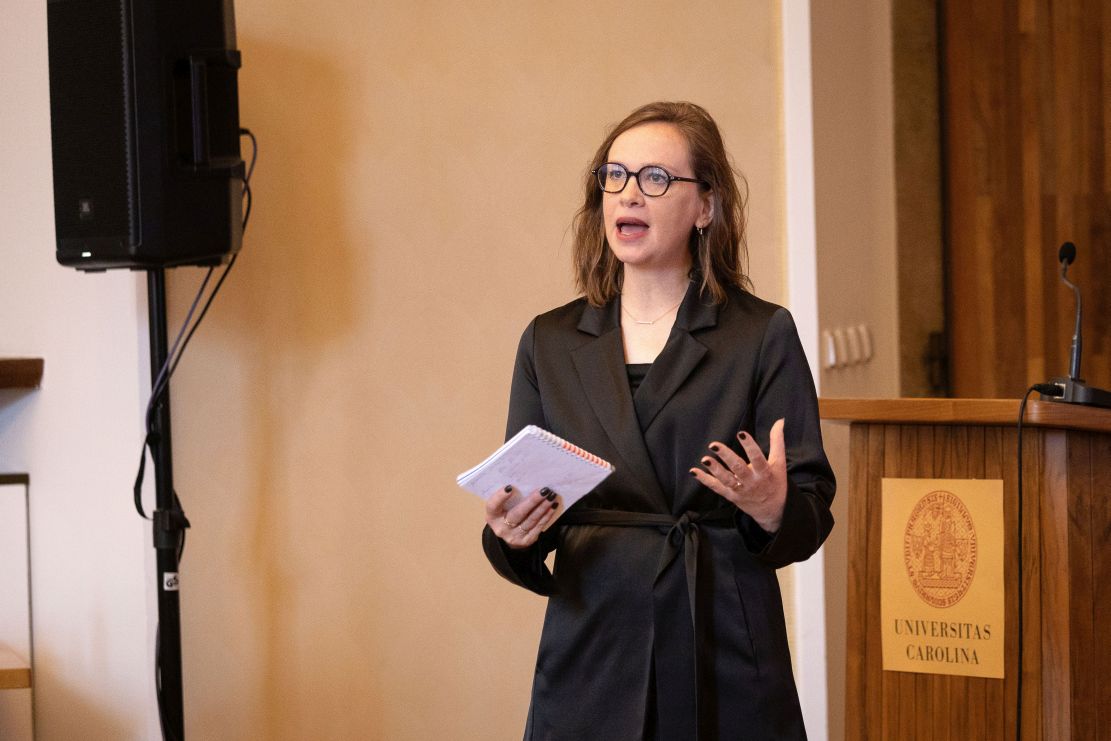
Charles University's David Emler, CzechInvest's Gabriela Bauerová, and Czech Centres' Tereza Šídlová discussed different aspects of cooperation.
After the business, education, and cultural programme wrapped up at the Carolinum’s Hall of Patriots, the former president and her delegation dropped into a discussion and meeting with students already underway, where she was asked about Taiwan’s own democraticisation process in the 1990s following the lifting of martial law in 1987. She and her delegation went into some detail about differences from, for eg. Czechoslovakia during that period, and herself stressed that as a Master’s student at the London School of Economics (in 1980, she later received her PhD from Cornell in the US – editor’s note) and later as an academic she could in no way have suspected she would one day serve as president.
Tsai Ing-wen said that politicians who had preceded her - and had been part of the transformation process - had played crucial roles and had one thing in common: many had spent time in prison. Some, she stressed, had paid with their lives. She said she was grateful to Taiwan’s first democratically-elected President Lee Teng-hui, a pivotal figure in the transition process who had made change possible. While she described democracy as sometimes “noisy and confrontational” with even physical altercations at times in parliament, the ex-president repeated that there had been a cost and implied strongly that it was worth defending. “By voting every four years, she said, “citizens were able to correct earlier decisions.” As many Czechs know from their own experience living previously in totalitarianism, that kind of 'course correction', those kinds of freedoms, are irreplaceable and were heavily bought.



